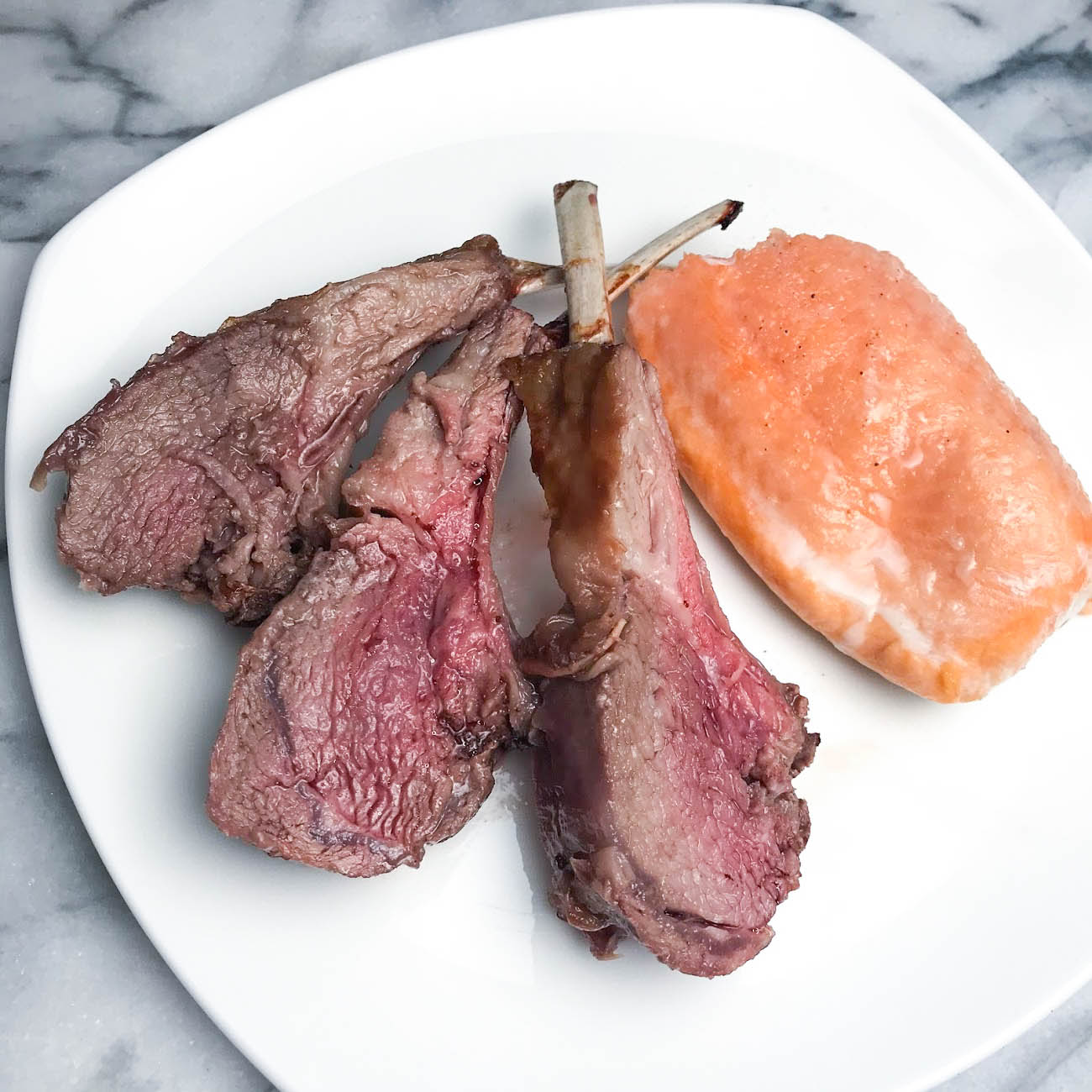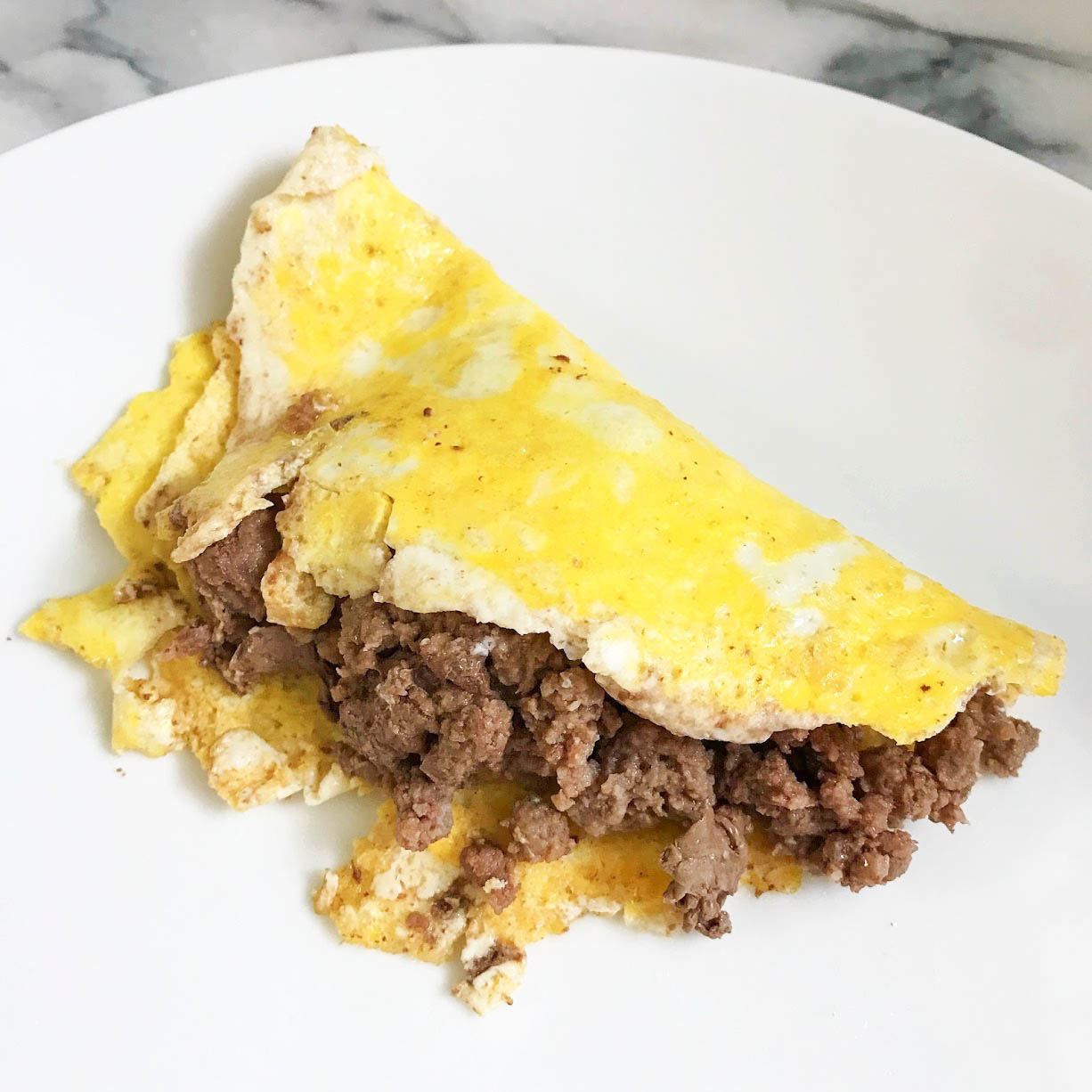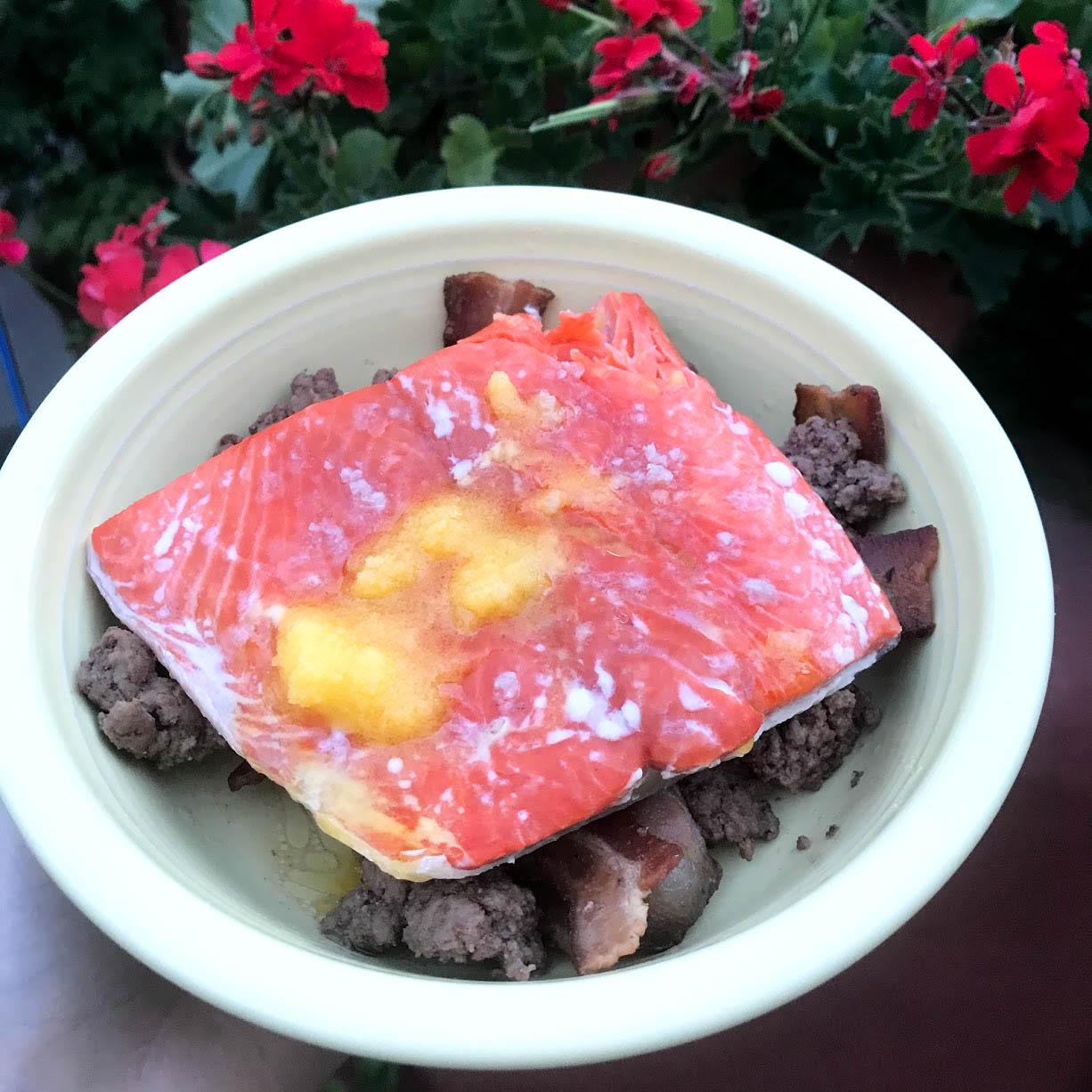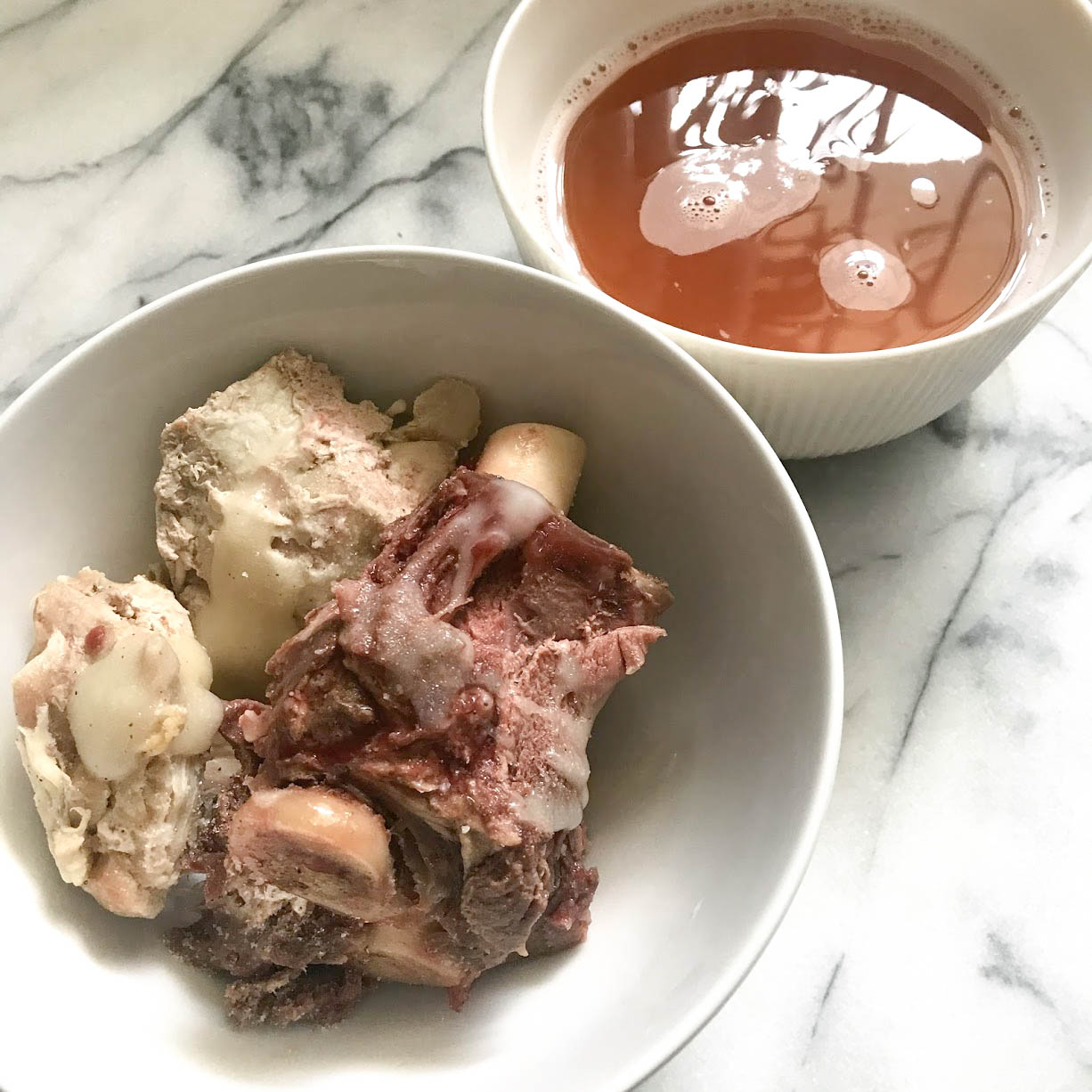
In my last post, I talked all about what the carnivore diet is as an introduction to this post, which will detail my experience trying it out for two weeks. If you haven’t already read part one about the basics behind the carnivore diet, you can read that here. I also recorded a podcast about the carnivore diet and my experience, which you can listen to here.
Before I hop in, I want to explain why I even wanted to try the carnivore diet in the first place. Everyone was posting about it on the internet, and my initial reaction was an eye roll. I thought it was just another extreme trend to capture people’s attention. Plus, I love vegetables, so truthfully I didn’t want to even entertain the idea that there might be benefits to eliminating them.
Then I started to learn more about it, hear more anecdotes, and actually think about it. The carnivore diet does make sense to me in terms of evolution and human physiology, which I explained more in my last post. We need animal protein in order to be healthy, and prioritizing animal protein is a big reason why humans were able to develop bigger brains. If I was a hunter-gatherer and found animal protein, I’m sure I would prioritize eating that over any measly plants. Plus, our digestive systems aren’t really designed for large vegetable intake, and our bodies don’t technically require us to eat any carbohydrates for survival.
I have always been someone who emphasizes the importance of healthy fats and healthy proteins in the diet for overall health, and I’ve also always been someone who loves meat, so I started wondering what it might do for me, specifically. The testimonials about the digestive benefits and reduction in inflammation were what really drew me in.
I’m dealing with some health issues that are A) very rare and B) caused by multiple unhelpful genetic mutations, and figuring it all out has been quite the process. My body’s ability to detoxify is really compromised, and I had reached a point where I was reacting negatively to almost every vegetable I ate. I was in a lot of pain and discomfort and was at the end of my rope, especially since there’s not much information available about what to do in my situation since it’s so uncommon. I was about to start another elimination diet that combined low-thiol foods with low-FODMAP while I went on a supplement protocol, but the thought honestly exhausted me.
Since I was already curious about the carnivore diet, I figured I might as well do the ultimate elimination diet and just take everything out. Not eating any vegetables felt easier mentally than eating such a small, confusing list of vegetables. Plus, I had read and heard so many positive anecdotes that I thought it might be just what my body needed – a break from fiber. I knew instinctively that all of my beloved veggies were causing me major issues, but I didn’t want to admit it. I was shocked at how many people were turning carnivore who I never expected to. It made me think, maybe there is something to this.
I wasn’t concerned at all about the “healthiness” of trying the carnivore diet, especially because I didn’t plan to eat only meat for the rest of my life. I wanted to use it as an elimination diet and a gut reset. One thing I was worried about, though, was emotionally missing vegetables. They’re so good! However, I was willing to put that aside for the chance that this could finally help heal my gut.
Also, I was slightly worried it would make me constipated. I spent most of my life dealing with extreme constipation, and I do not want to go back to that. However, I had read plenty of testimonials from people saying that the carnivore diet actually eliminated their constipation. I was never going to know until I tried it out, and I didn’t have anything to lose.
I’m all about self-experimentation. I love the idea of testing every health trend out on myself, but I also don’t want to experiment with something that I know is going to make me feel horrible. This experiment, though, could actually benefit me.

Most people try the carnivore diet for at least 30 days to give their bodies enough time to adapt. I didn’t want to put any pressure on myself regarding how long I was going to try it, though, so I decided I would aim for a week but stop sooner if I hated it and keep going if I felt good.
The first week or so is typically the hardest part for people because they’re usually going through the low-carb / keto flu as their body adapts to a massive reduction in carbohydrates. Thankfully, I didn’t have any of those symptoms because my body has been fat-adapted for awhile. I did experience major protein sweats on the first day, though. Protein is very thermogenic, so I felt like it was 100*F in my apartment when it was really only 70*. I also felt a little hypoglycemic from all of the protein, but other than that, nothing negative happened. It was easy for me to go about my daily activities.
I think the social and mental aspects of the carnivore diet are the hardest parts. I knew it was going to be tricky doing anything social with friends or family. It’s easy enough to get meat when you’re out, but also sometimes awkward to order enough to satiate you. Plus, proteins from restaurants are often cooked in an oil that’s not allowed on the carnivore diet. Most restaurants use vegetable oil, butter, or olive oil. I can’t tolerate butter, don’t eat vegetable oil in general, and olive oil isn’t allowed on the carnivore diet. I planned on just eating in. I know that for many people, it’s hard for them to eat only meat while they watch others around them eat “more exciting” foods. Personally, I don’t struggle with food FOMO, so I had no problem eating a big hunk of meat while people around me ate whatever they wanted. I also live alone, though, so eating with other people only came up a few times. Thankfully all of my friends are used to my weird dietary restrictions, so no one questioned it.
Mentally, it can feel strange to eat so much meat at once. Because it is a lot. It’s easy for people to undereat on the carnivore diet for a few reasons. First of all, a diet that only contains protein and fat is very satiating, so most people simply don’t feel very hungry. Second, I think a lot of people still have a hard time getting past the mental block of sitting down and eating a whole pound of meat at a meal. They’re still stuck with an idea in their head of what “too much” meat is or what a “normal” serving size is, and they’re afraid to go over that. That can lead to weight loss, of course, but can also lead to downregulating your metabolism and undernourishing yourself if you’re really not eating enough calories. In order to get the benefits, you still have to eat enough food, especially during any sort of adaptation period. Your body is already under stress during adaptation and doesn’t need to deal with the added stressor of being underfed, in my opinion.
It was a little weird at first, but I had no problem going to town on my meat! In fact, I had a lot of fun with it. I love meat and felt like I was tapping into my primal instincts. I had fun with my cooking and trying new recipes. I roasted a whole duck, made a “meatza” (pizza made out of meat), cooked omelettes filled with beef, tried a few new organ meats, and included both cooked and raw meat.
It’s common for people to move to one or two meals a day on the carnivore diet, but I kept it to three. I think three meals a day is important for my body’s hormonal signaling, and I also wanted to make sure I didn’t lose any weight or downregulate my metabolism by eating less calories.
Portion sizes are an awkward subject when it comes to the carnivore diet.When I was getting the hang of it, I’d sit down with a decent serving of protein, eat, assess my satiety, and usually go for more. I underestimated my hunger at pretty much every meal. Again, it goes back to that mental block of the portions we’ve been conditioned to eat.
From what I can gather, it seems like most people eat about 2-3 pounds of meat per day, although others say 1-2. Dr. Shawn Baker says he eats 4-5 pounds, and he’s a very big, muscular man. Many people seem to eat “extra” during adaptation, and then their hunger balances out and they eat less. That’s another reason people try the carnivore diet – appetite regulation. I was curious how it would affect my hunger, because I have a huge appetite. The first few days, I ate about 4.5 pounds each day, and then the rest of the experiment I ate about 3-4 pounds a day.
It’s also common for people to do the exact opposite of what I just described – they might accidentally not eat enough at the beginning because they’re not used to hefty meat portions, and then they end up increasing their intake after they realize their bodies need more fuel.
At first I was nervous about how expensive all of this grass-fed meat would be, but I later realized that it ended up being cheaper than how I ate before. Even though grass-fed meat can be expensive, it’s also the only thing you’re buying, so it evened out once I saw how much I actually ate.
The first week, I stuck to straight animal products – red meat, some chicken thighs, duck, bacon, some salmon. It was mostly red meat, though – ground beef, ribeyes, lamb, and so on. I ate every cut I could get my hands on. In terms of nutrient density, fatty cuts of 100% grass-fed beef are your best bet. I also included bone broth every day, plenty of organ meats like liver and heart, and a combination of raw and cooked meat. I cooked in duck fat, bison tallow, and ghee (more on that in a bit), and usually topped my meals off with a bit of added fat as well. Most people on the carnivore diet sit down and eat a huge piece of their one protein of choice, but (typical) I wanted to keep things more interesting. I usually ate 2 types of protein at one meal… just so I didn’t get bored. Beware: the bacon and ground beef combination is dangerous.

I only used salt to season my foods. I also only drank water, but my one “cheat” was that I had a tablespoon of ACV in my warm water each morning. My stomach acid is low, so I felt like I needed a bit of ACV in the mornings to help digest all of that protein.
By the second day, I felt really good. The protein sweats and hypoglycemia were gone. My inflammation went down dramatically and I could already tell how much better my digestion was. My bloating was gone. I also had a lot more energy, and my mood dramatically improved. I told my friends I felt like I was on happy pills.
All around, I felt amazing the first week, especially with my digestion. I was wrong to worry about becoming constipated because, if anything, the opposite happened. There were about two days when I had loose stools, but that evened out. I’m still not sure if that was because of the ghee I was using (I do react to ghee when I use too much of it), or because my fat:protein ratio was too high. I stopped using ghee and ate slightly less fat, and things evened out. After that, I had never had better bowel movements in my life! That obviously put me in a good mood.
I also quickly realized how much I loved the simplicity of this way of eating and how much time it saved me during the day. Eating and cooking are much faster on the carnivore diet, and you also don’t have to make many decisions when it comes to food. I didn’t have to chop or roast any vegetables, which I realized took me more time than I thought. It was easy for me to throw a few pounds of meat in my Instant Pot and have plenty of leftovers to last a few meals.
Since I felt so great the first week, I continued for a second week. The second week, I eased up on some of the “rules” and brought tea and adaptogenic drinks back into my diet, and I also didn’t worry about whether or not my food was cooked in any seasoning. I didn’t use any seasoning myself besides salt, but I went out a few times and got chicken that had thyme and pepper on it. That was my go-to when eating out, by the way – a rotisserie chicken. I also went to a dinner party and had no problems at all sticking to carnivore. I just ate all of the protein options! I felt like I was on a high because I felt so good, and at the time I felt like I could eat carnivore forever.
Later in the second week, things started to get a little weird. Some people said days 13-14 were the hardest, so I wasn’t sure if I just needed to stick it out or if it was time to call it quits. I had felt so amazing before that I was biased towards sticking it out. I started to get intense cravings for carbs, which hasn’t happened to me in probably 3 years. I definitely “crave” things at certain times, but these were intense “I NEED TO EAT THIS NOW / I FEEL LIKE A RABID ANIMAL” cravings that I was not used to… and I did not like them. I was craving a huge bowl of cinnamon roasted veggies dripping in 100% dark chocolate. I know, I’m so weird.
I also started to feel some strange mental effects. I was getting brain fog and I felt like I was on toxic overload. It felt like there was a balloon in my head. I also started to get even hungrier than before. But my excellent digestion made me want to keep going.
Then I had an issue with my digestion and had really bad diarrhea for a day. Once again, I wasn’t sure if it was the ghee (because I started eating it again), or if it was because I was eating way too much fat in comparison to protein. I wasn’t shooting for any specific fat:protein ratio during the experiment, so it was easy for me to accidentally eat too much fat because that’s what I generally gravitate towards. Once I stopped with the ghee again and moved to proteins that weren’t as high in fat for a few meals (still not lean, though!), I felt better (just like what happened the week before as well). I’m talking about moving from ribeyes, duck, and bacon to ground beef and chicken thighs.
Even though my digestion went back to normal, I was still struggling with what was happening with my brain, and I felt off. I decided to stop the experiment after two weeks and eat some vegetables. I felt like my body needed a balance, and after I ate some greens, I felt a lot better.
It was at about the same time that I figured out the connection between my genetic mutations and my body’s poor detoxification processes. Long story short, sulfur and ammonia easily build up in my body (and brain), which explains what I was feeling. My situation is very uncommon, so for most people that would never be an issue. If I didn’t have those genetic mutations giving me symptoms, I probably would have stayed carnivore a lot longer. It ended up being exactly what I needed in terms of an elimination diet, though, because reintroductions showed me quite clearly exactly which vegetables were causing me issues, and that vegetables, in general, are rough on my system. Can’t deny it now.
Even though I only did it for two weeks, I felt like the carnivore diet was a total success for me because it taught me a lot about my body. In fact, knowing how good I feel on meat-only (short term, apparently), is really useful information to have.
A few weeks later while traveling, I decided to eat any vegetables I wanted rather than stick to low-sulfur, just to make my life easier. I quickly realized that was a horrible idea. I had a lot of intense symptoms that made me actually miss some things I had planned, but it was my sister’s wedding week so I needed to pull it together ASAP. I ended up going back to mostly carnivore during that time, and it made me feel 1000 times better. I mostly ate rotisserie chickens rather than red meat (which can be a trigger for those who react to sulfur), and I felt really good, which was interesting to find out. I ate only animal products when I was by myself, and then if a vegetable “came up” (at a few dinners), I ate the vegetable. This definitely worked to reset my body.
Since then, I’ve basically just been using carnivore short-term, intermittently, if my digestion is off. I think of it as a tool to keep in my back pocket.

My Final Thoughts
Trying out the carnivore diet definitely challenged my beliefs about what makes up a “balanced” plate, which is why I’m so glad I did it. Maybe more people really would feel much better eating more animal protein than plants. Maybe a lot of people in the paleo space are eating more vegetables than their bodies would like. Then again, maybe not. It really just confirmed for me that there is no single way of eating or macronutrient ratio that works best for everyone. Some people might thrive on mostly plants with a bit of animal protein as a “condimeat,” as Dr. Mark Hyman likes to say, while others might do better with half of their plate (or more) as animal protein. What’s too much for you might be too little for me, and vice versa.
That being said, I do think that most people I personally run across aren’t eating enough animal products, which I’m sure is a function of the type of people I’m usually around / working with. I still think a lot of people are nervous about eating protein and fat, for some reason. If I was in the bodybuilding world though, for instance, I probably wouldn’t have that perspective. However, considering the fact that most of America struggles with their weight, blood sugar dysregulation, and digestive issues, I’m inclined to think that most people aren’t eating enough protein and fat.
This experiment also opened my eyes to using this as an option for an elimination diet for people who have major gut issues and aren’t seeing results with anything else. It doesn’t seem crazy to me anymore. I really do think that people who have gut problems need to take it easier on the fiber, and anecdotes from many people on the carnivore diet, myself included, show just how much fiber can sometimes negatively impact digestion.
Like I said, I like having this in my back pocket as a tool to use. I don’t think anyone should be eating the same macronutrient ratios forever, because in terms of evolution it doesn’t make sense for our macros to remain constant. For myself, I like the idea of cycling the carnivore diet in every once in awhile to give my gut a break, and then maybe after that I focus more on plants and eat less animal protein. Our ancestors didn’t have access to all foods at all times like we do now, so they naturally cycled their food / macronutrient ratios.

Regarding the carnivore diet’s “safety” longterm, my personal hunch is that it’s perfectly safe, but just might not necessarily be optimal. Remember, there are no longterm studies on the carnivore diet, so we don’t really know. These are just my current thoughts. I think it’s optimal to get plenty of animal protein, but also to include as many plant foods as you can without negative effects so that you get plenty of beneficial phytonutrients and feed your gut flora. I also worry that the carnivore diet longterm could have negative effects on leptin signaling. I don’t think the carnivore diet is for everyone, but I can see how it could be life-changing for others.
That being said, I think a lot of people are jumping to the carnivore diet without trying other options first, and I would encourage them to try those other options first. I think the goal should be to include as many foods into our diets as possible. It makes sense that the carnivore diet acts as a good reset for people, but I think it’s a little lazy, honestly, to get good results with carnivore and never try to reintroduce food later on. If the carnivore diet is working really well for someone and they have a hard time reintroducing any vegetables, that’s a symptom of a deeper problem, and the diet is just acting as symptom management. I think it’s important to address the root issue in the body (like gut dysbiosis, as I believe the problem is for many) so that your body can tolerate foods other than meat. I see the benefits of the carnivore diet as a reset or elimination diet, but when it becomes a lifestyle, I fear that it’s just a way to avoid addressing the underlying root issue of why those plant foods are causing such extreme reactions in the body. I think the carnivore diet can be helpful on the path to healing, but I’m not sure it’s a real solution.
If someone wants to try it out, my advice is to make sure you’re eating enough food, and to invest in high-quality proteins. There are many people who argue you don’t need to worry about meat quality, but personally I do think it’s important to focus on well-sourced protein as often as you can for nutritional and ethical reasons. Also, don’t be afraid to eat to satiety! I think this is harder for women than men because of cultural conditioning, and it’s incredibly important. Lastly, make sure you’re choosing fatty cuts of meat. A few people emailed me saying they were trying it out, felt horrible, and didn’t know why. Then I found out they were eating turkey, chicken and other leaner cuts of protein instead of the fatty cuts. Of course you won’t feel well if you’re eating lean meats! Your body needs fat for fuel. Give yourself healthy animal fats so you have plenty of fuel to function off of!
Maybe my opinion will change as I learn more, but for right now, this is what I think about the carnivore diet. I hope that sharing my own experience inspires others to be open to different ways of eating and to respect everybody’s experiences and choices!

